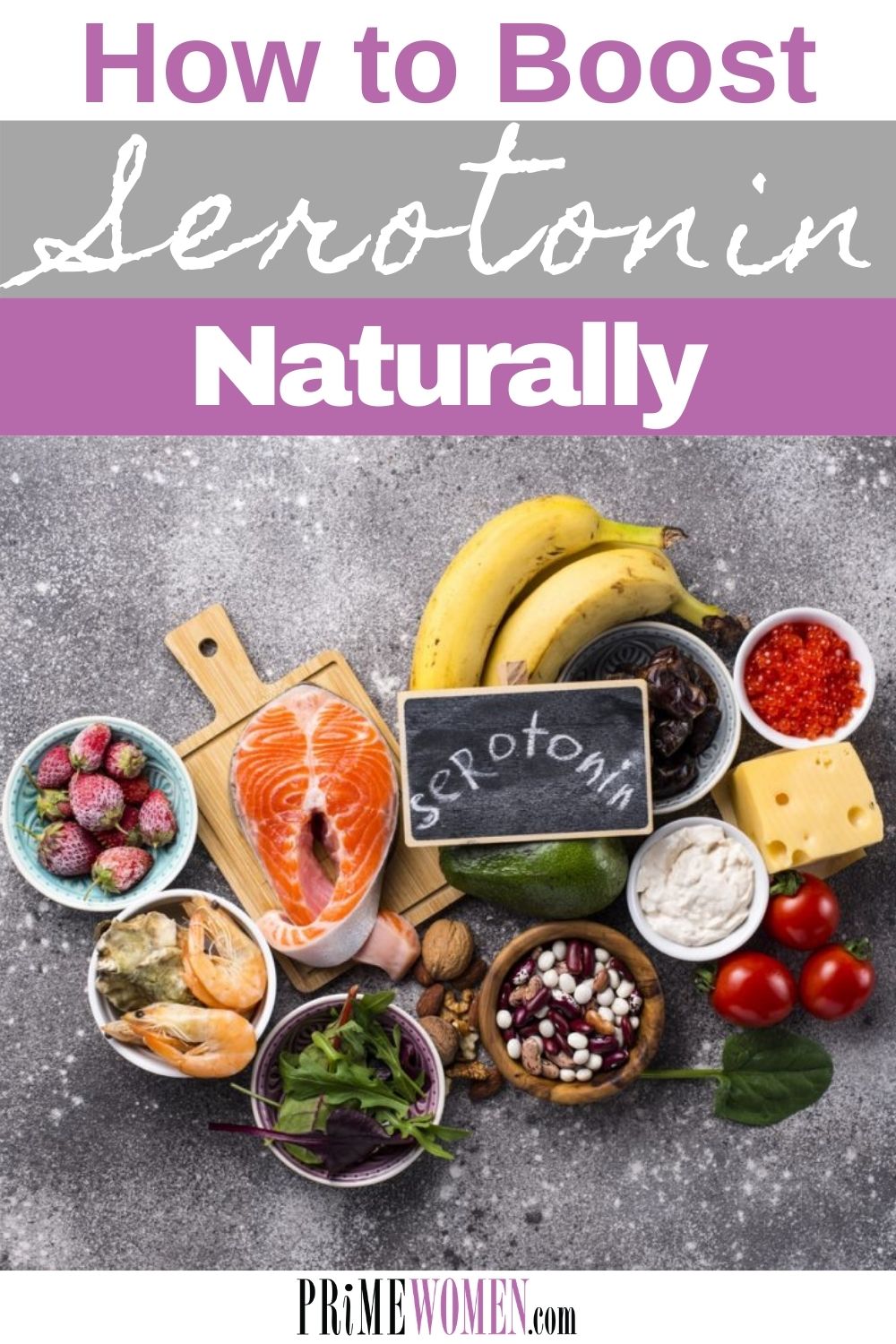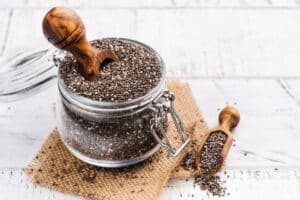Most people are aware of the connection between serotonin levels and their mood. Still, many do not realize how much our body depends on proper serotonin levels for many other functions. Understanding how to boost serotonin levels can have a significant impact on our overall health.
What is Serotonin?
Serotonin is a chemical that helps send signals from one part of the brain to another. Although the signaling process occurs in the brain, only a small portion of the production of serotonin is found there. Approximately 95% of serotonin production occurs in the gut.
The amino acid tryptophan is responsible for making serotonin. The body does not produce tryptophan; thus, we must obtain this amino acid through our diet. You can accomplish this by eating a variety of healthy, tryptophan-rich foods and, if necessary, incorporating a supplement into your daily routine.
Brain & Gut Connection
As mentioned above, the intestines produce the majority of serotonin. When we don’t focus on improving gut health, our brain health can also become a problem. A study published by the US National Library of Medicine showed increased levels of anxiety and depression in those with Irritable Bowel Syndrome (IBS).
An article published by The University of Washington Memory & Brain Wellness Center states, “…Down in the gut, bacteria make neuroactive compounds, including 90% of our neurotransmitter serotonin, which regulates our emotions. In turn, the brain can send signals to the gastrointestinal system, for example, to stimulate or suppress digestion.”
Benefits of Boosting Serotonin

Helps Regulate Mood
Low serotonin levels are linked to depression and memory issues. Increased serotonin levels help reduce anxiety and relieve depression. Therefore, if we aren’t getting enough tryptophan in our diet, we aren’t getting enough serotonin to keep our mood stable and to help alleviate the symptoms of anxiety and depression.
Helps Heal Wounds
Studies show that serotonin is essential for normal wound healing in multiple organs, including the lungs, heart, liver, and skin. Tissue serotonin levels are higher in post-burn patients. A study conducted by The International Journal of Molecular Sciences revealed that serotonin treatment improved the wound healing process.
Promotes Blood Clotting
Blood platelets release serotonin, and this helps increase blood clotting in wounds. However, while necessary blood clotting is vital to health, too much serotonin can cause blood clots that could lead to heart disease.
Improves Digestion

With so much serotonin being produced in the gut, it’s no surprise that when gut health improves and serotonin levels increase, we begin to see an improvement in our digestion. Regular bowel movements and appetite regulation are only two areas that can be significantly improved by healing the gut.
Serotonin Deficiency Symptoms
Serotonin deficiency presents itself in multiple ways and causes a myriad of issues, both physically and emotionally. Some of the main symptoms of serotonin deficiency include:
- Depression
- Memory issues
- Anxiety
- Appetite issues
- Dementia
- Panic attacks
- Digestion issues
- Problems with sleep
5 Ways to Boost Serotonin Naturally
Get enough sunlight

Exposure to sunlight can help trigger the brain to release serotonin. It has been shown that Seasonal Affective Disorder (SAD) is associated with lower serotonin levels, so it makes sense to increase time outdoors. During the summer months, it’s easy to get outside and get some sunshine, but it’s equally important to find ways to increase serotonin levels during the cold winter months.
Exercise
Besides being good for overall health, exercise can increase serotonin levels in the blood. Going for a walk, jogging, or joining a fun aerobics class may be just what you need to feel motivated and energized. If you’re trying to survive the winter months and can’t get outside for a bit of exercise, consider joining your local gym or fitness center and try out a class or take up swimming. Not only will the exercise improve your mood, but the interaction with your fellow gym-goers can keep you going through the long winter months.
Eat anti-inflammatory foods

Eating a healthy, anti-inflammatory diet is vital for healing the gut, and it is essential to avoid sugar, processed foods, and unhealthy oils. Add fresh vegetables, bone broth, salmon, ghee, and avocados to your diet to ensure you’re getting the proper nutrition to keep a healthy gut and, thus, a healthy emotional state.
Eat foods that contain tryptophan.
Tryptophan is an amino acid obtained from food. It is vital for the production of serotonin. Foods rich in tryptophan include:
- Eggs
- Chicken
- Seafood
- Legumes
- Nuts
Take a probiotic
Adding a high-quality probiotic is also a great way to heal the gut. Healthy bacteria are beneficial for improving gut health. Probiotics help heal the gut lining, aid in nutrient absorption, and reduce chronic inflammation. Adding probiotic yogurt, kombucha, and apple cider vinegar with the “mother” is a great option.
Moderation is Key
Serotonin syndrome is a rare condition in which your body accumulates a high level of serotonin. Combining certain medications or overusing supplements can cause this condition. Moderation is key in anything we do, and serotonin supplements should be taken under a doctor’s care.
By incorporating these healthy lifestyle changes into your daily routine, you can be confident that you are taking proactive steps to boost your serotonin levels and achieve overall well-being.
Read Next:
7 Surprisingly Unhealthy Diet Foods
The Best Foods To Eat (And Avoid) For Inflammation









